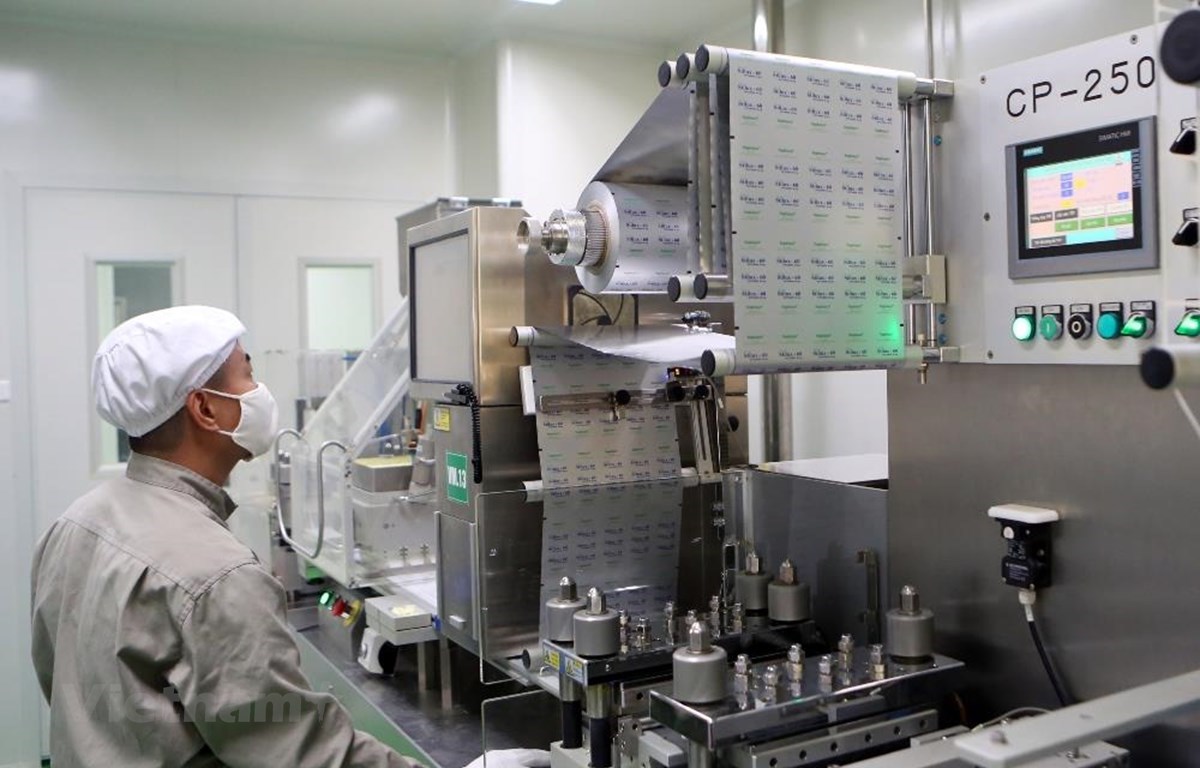Vietnamese firms need support to get immunity against COVID-19

Hanoi (VNA) – Although Vietnamese enterprises continue to do well amidst the COVID-19 pandemic, the Government should devise more drastic measures to remove bottlenecks for them to develop further, according to experts.
Institutions, mechanisms more important than capital
President of the Vietnam Chamber of Commerce and Industry (VCCI) Vu Tien Loc hailed the Government’s timely measures, and described Vietnam’s positive economic growth as a miracle.
However, local businesses have not got full recovery since millions of workers are facing unpaid furloughs or layoffs, he said, suggesting the Government’s second support package should focus on potential sectors which create momentum for growth like aviation and tourism.
Loc added financial assistance is always limited while efforts to better institutions and mechanisms are boundless support and serve as key motive for development of business and production activities.
“Vietnam’s business climate and competitive capacity have not changed much in the ASEAN’s rankings, which means the country has huge potential to improve. I do believe that removing barriers and better competitive capacity will be the largest source for development”, Loc stressed.
 Many businesses said they do not need capital but favourable institutions and mechanisms (Photo: VietnamPlus).
Many businesses said they do not need capital but favourable institutions and mechanisms (Photo: VietnamPlus).
Removing bottlenecks for support packages
The Government’s extension of deadlines for corporate tax payments until December 31 to support businesses suffering from the COVID-19 pandemic is timely, but there is no document instructing the provincial tax bureaus, making tax debts seen as bank’s bad debts said Nguyen Dinh Tan, a representative from Bac Ninh province’s business association.
In this context, enterprises have not benefited much from the Government’s support package, he pointed out, recommending policies should be mapped out to separate tax arrears with bank debts.
For young businesses, Director of the Institute of Business Studies and Development (INBUS) Nguyen Manh Quan voiced his concern over the fact that the national fund for startups and innovation has yet to operate, which makes it difficult for startups to get access to preferential policies.
Several support policies for small- and medium-enterprises (SMEs) have not been implemented as businesses got no information while management agencies have no ground to assist the firms, Quan stressed.
Sharing the same viewpoint, Nguyen Hong Long, deputy head of the Steering Committee for Enterprise Innovation and Development, said many firms have been in the dark about the local authorities’ support policies, and this is due to poor communication work.
 Many firms are unaware of the Government’s support policies (Photo: VietnamPlus).
Many firms are unaware of the Government’s support policies (Photo: VietnamPlus).
Along with the pandemic, local authorities’ scattered inspections have caused difficulties for business operations, Long pointed out.
Except for Quang Ninh, Bac Giang and Thai Nguyen provinces which have done a good job in helping local firms, other localities must work to improve the situation, he said.
Supporting enterprises is a way to support employees and create more jobs and promoting economic reforms and simplifying administrative procedures remain the most important ways to help enterprises amid the pandemic.
The COVID-19 pandemic has also pushed enterprises to acknowledge the superiority of the digital economy, highlighting the urgent need for business support measures in the process of digital transformation.
According to a new report from the Asian Development Bank (ADB) showed that strengthening the dynamics of micro, small, and medium-sized enterprises (MSMEs) with innovation and internationalisation would be key to revitalising Southeast Asian economies devastated by the coronavirus pandemic.
MSMEs are a critical driving force in Southeast Asian economies, accounting for an average of 97 percent of all enterprises and 69 percent of the national workforce from 2010 to 2019. They contributed an average of 41 percent of each country’s gross domestic product over the same period.
MSMEs in Southeast Asian economies mainly focus on domestic markets and their level of entrepreneurship remains suboptimal. Supporting the development of MSMEs, particularly in technology adoption and participation in global supply chains, will contribute to inclusive growth and aid in recovery efforts from COVID-19,” said ADB Chief Economist Yasuyuki Sawada./.












